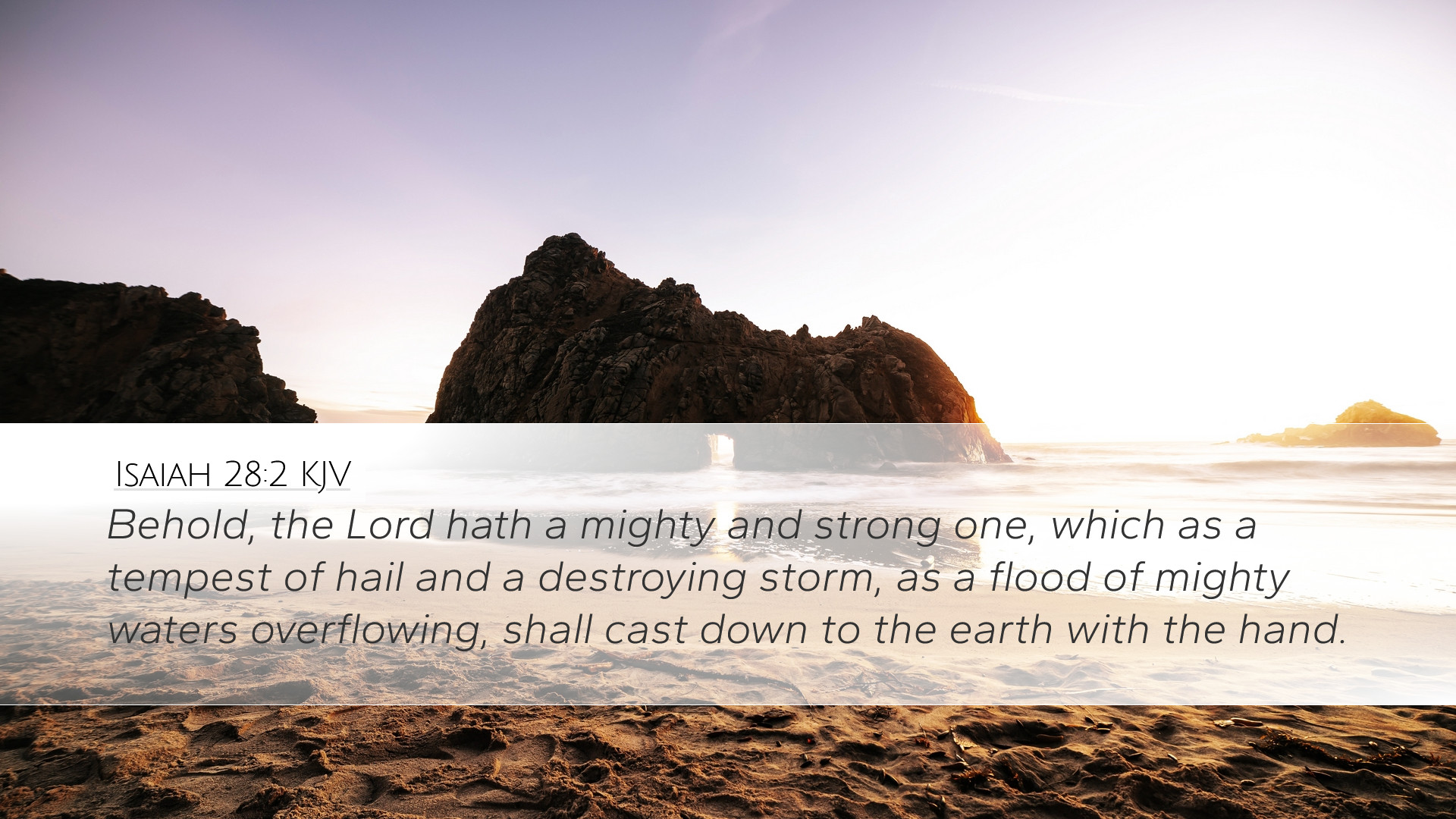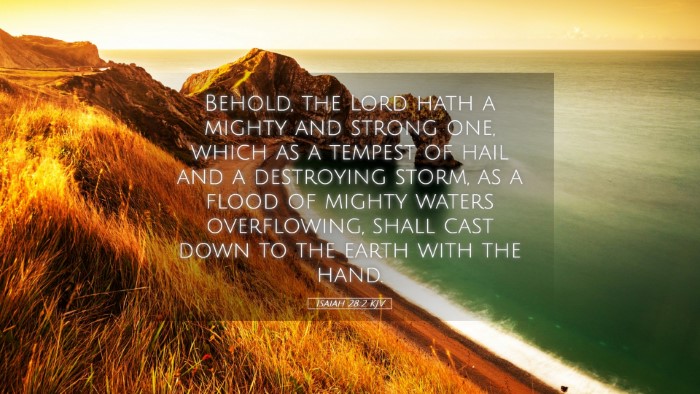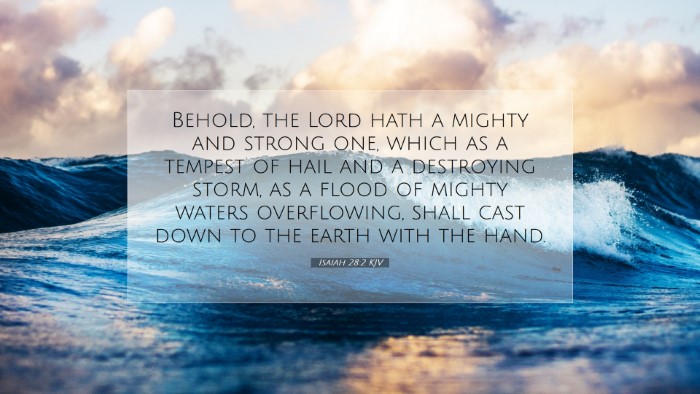Commentary on Isaiah 28:2
Isaiah 28:2 states:
“Behold, the Lord has a mighty and strong one, like a tempest of hail and a destroying storm, like a flood of mighty waters overflowing, who will bring them down to the earth with His hand.”
Introduction
The prophecy found in Isaiah 28:2 addresses the spiritual and moral condition of Israel during a turbulent period. The verse serves as a poignant reminder of God's sovereignty and judgment against complacency and false security. Scholars such as Albert Barnes, Adam Clarke, and Matthew Henry provide rich insights into the implications of this passage.
Exegesis of Isaiah 28:2
This verse richly illustrates the character and actions of God as a powerful agent of judgment. It reflects the duality of God’s nature: His strength as a protector for the faithful and His might as a judge against transgressors.
1. The Mighty and Strong One
Isaiah begins with a proclamation of a "mighty and strong one." This attribute of God is essential for understanding the context of judgment.
- Albert Barnes: He emphasizes the appropriateness of this description, suggesting it corresponds to God’s divine authority over nations and individuals alike.
- Matthew Henry: In his commentary, he notes that this strong one may symbolize either a particular leader appointed by God or the Lord Himself, who executes judgment with unfailing fidelity.
- Adam Clarke: Clarke elucidates that the term conveys God’s unmatched power, especially in contrast to the feeble defenses of human societies that fail to recognize their dependence on Him.
2. Associations with Natural Disasters
The metaphors of "tempest of hail" and "destroying storm" serve to illustrate the intensity of God’s judgment.
- Matthew Henry: He draws a parallel between natural disasters and God's judgment, underscoring the awe-inspiring power of both. Just as a storm can be devastating, so too can God's wrath be when poured out on unrepentant hearts.
- Albert Barnes: He interprets these metaphors as emphasizing the unexpected and overwhelming nature of God’s judgments, which can arrive suddenly and with great ferocity, much like a storm.
- Adam Clarke: Clarke suggests that the vivid imagery instills a sense of urgency, compelling those in complacency to recognize the coming dangers they face due to their sin.
3. The Flood of Mighty Waters
The phrase "like a flood of mighty waters overflowing" indicates not just the power of the judgment but also its potential to inundate and overwhelm.
- Albert Barnes: He highlights that water often symbolizes chaos and destruction in literature, and in a similar vein, God’s judgment brings chaos to the complacent.
- Matthew Henry: He notes this flood imagery signifies the irresistible nature of God’s will, portraying how no one can withstand such a deluge of divine displeasure.
- Adam Clarke: He reflects on the transformative power of water and applies this metaphor to how God will change the landscape of their existence through His intervention, pressing them toward recognition of their sinfulness.
Theological Implications
In light of this verse, several theological implications emerge, relevant for pastors, theologians, and students.
- The Nature of God: The passage affirms God’s omnipotent nature, exhibiting both strength and impartiality in judgment.
- Human Responsibility: It underscores the need for individuals and nations to repent and align with God’s will to avoid impending judgment.
- Assurance for the Righteous: For those who adhere to God's ways, these descriptions serve as a reminder of protection from impending wrath, cementing the belief that God delivers justice.
Practical Applications
As modern-day readers of this text, these reflections can prompt vital self-examination and corporate repentance.
- Self-Examination: Pastors and students of scripture are urged to introspect on their spiritual conditions and the communal environment within their congregations.
- Call to Repentance: Church leaders should feel compelled to preach the message of repentance and reliance on God's mercy.
- Hope and Assurance: While the verse serves as a warning, it ultimately points to God as a source of salvation for those who earnestly seek Him.
Conclusion
Isaiah 28:2 is a profound representation of God’s power and the seriousness of His judgment. Through the lens of public domain commentaries, one can see the depth and richness of this verse as it addresses both God's sovereignty and the call to holiness. As listeners and learners, the challenge is not only to understand these truths intellectually but also to embrace them in a way that transforms our lives and communities.


